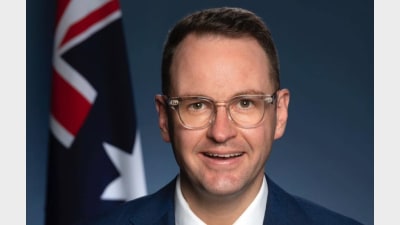ETF growth creates need for education
The recent huge growth in the exchange traded fund (ETD) sector, combined with the growing number of products and increasing complexity in the sector, means more investor education into the sector will be required.
That was one of the findings from a Tria Investment Partners report into ETFs titled ‘Lift off: the Australian ETF market gains altitude’, which was commissioned and prepared for ETF issuers State Street Global Advisors (SSgA), iShares Australia, Vanguard Investments Australia and Russell Investments.
Australian ETFs have grown 70 per cent per annum over the last three years, although from a low base, the report found.
Although SSgA still holds a 70 per cent market share, demand from the growing self-managed super fund sector had led to the emergence of other players, including iShares Australia, Vanguard Investments Australia and Russell Investments, along with boutiques BetaShares and Australian Index Investment, the report stated.
Tria Investment Partners managing partner, Andrew Baker, said that much of the noise and regulatory focus around ETFs was due to exotic ETFs that accounted for a very low percentage of ETF assets.
Despite the increasing popularity of niche products, such as synthetic/swap-based and exotic ETFs, the majority of ETF assets involve straightforward share exposure, he said.
The emergence of these niche products which offer “a dazzling range of specialised and exotic investment exposures”, meant that investors and advisers should do their homework, the report stated.
Some of these were volatile and risky and although they could have useful applications were likely to cause disappointments, according to the report.
SSgA, which provides seven physical SPDR ETFs, said the report found that ETFs were on the whole a robust structure which withstood the global financial crisis better than many other products.
SSgA’s head of SPDR ETFs Asia Pacific, Frank Henze, said the transparency, low cost and ease of transaction of such ETFs are important in times of market uncertainty, and also account for 93 per cent of global ETF assets.
“While regulatory concerns have been raised about the effect of ETFs on market stability, many refer to the remaining seven percent of the industry which focuses on the more complex swap-based/synthetic ETFs,” he said.
Recommended for you
Australia’s second largest super fund has added thermal coal companies to its list of investment exclusions.
The fund has expanded its corporate superannuation solutions to partner with Australian businesses of all sizes.
The chief executive of Aware Super anticipates a significant shift in how ESG factors will influence portfolio values in the next six years, surpassing the changes witnessed in the past two decades.
In a recent statement, shadow assistant minister for home ownership and Liberal senator for NSW, Andrew Bragg, accused ‘big super’ of fabricating data attributed to the Reserve Bank of Australia to push their agenda.












Add new comment